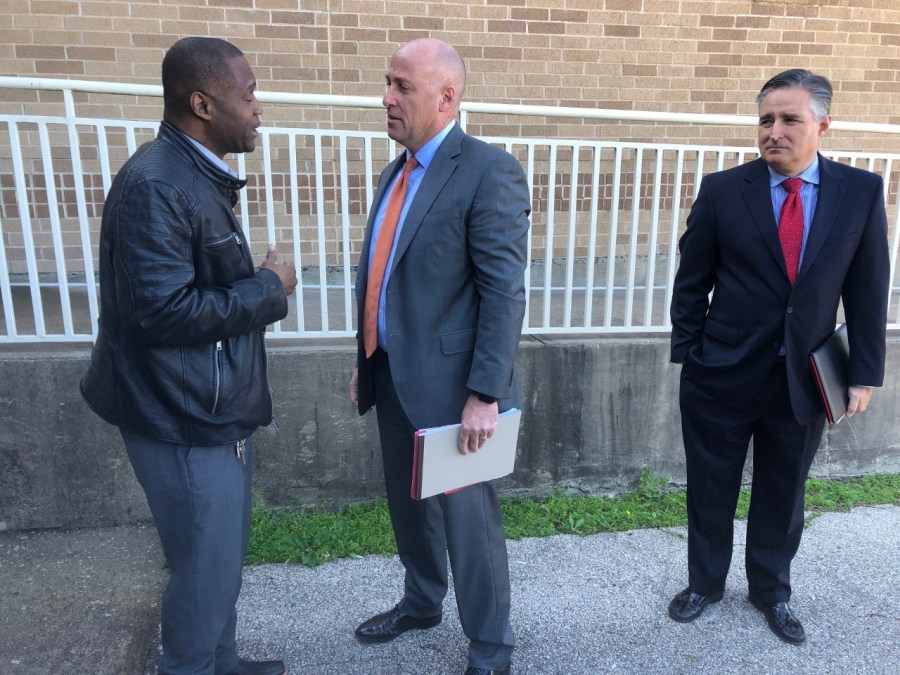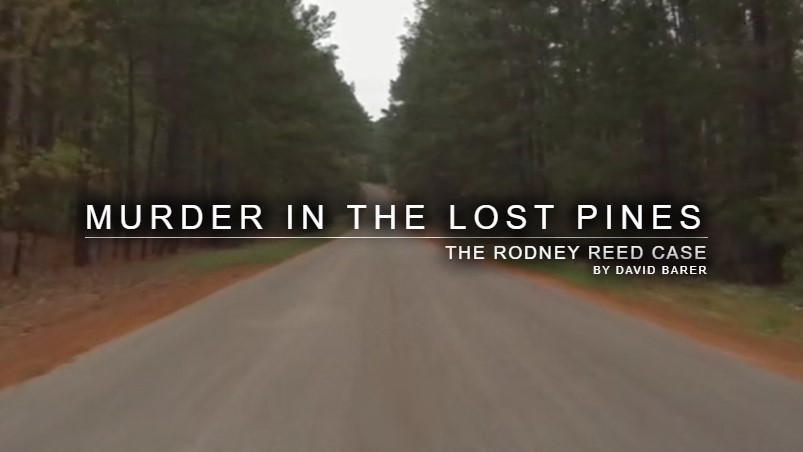BASTROP, Texas (KXAN) — Judge Jimmy John “J.D.” Langley denied requests from Rodney Reed’s lawyers to take him off the case in a Bastrop County courtroom Friday.
Reed’s family was present as he walked into the small Bastrop County Jail courtroom for the first time since the Texas Court of Criminal Appeals stayed Reed’s Nov. 20 execution five days before he was to be put to death.
“No, the judge was not changing at all, but, you know, God has his hand in this and we’ve done all that we can do and we’ll allow him to do the rest,” said Rodney Reed’s brother, Rodrick Reed.
Friday’s hearing happened in the same place where a jury sentenced Rodney Reed to death 22 years ago for killing Stacey Stites. He’s already had three different judges since that conviction and death sentence in 1998.
“I think that the justice system has been doing a good job. We want him to have his due process, but at the end of the day this man is guilty of violently raping and murdering my sister — in addition to raping and attacking other women and he will get a just punishment for that,” said Stites’ sister, Deborah Oliver.
On Friday, Oliver reacted to the judge’s decision outside of the courtroom, which can be viewed below.
Reed’s lawyers tell KXAN they were just wanting to follow the law by requesting 21st District Court Judge Carson Campbell to preside over the case, but Judge Langley didn’t agree with that plea. He was assigned to the case in November.
“Our understanding of the law is that the presiding judge at the convicting court is the judge that needs to take care of these proceedings. The presiding judge is not Judge Langley, it’s Judge Campbell,” said Reed’s lead counsel, Andrew McRae.
On Friday, McCrae explained his thoughts to KXAN Investigator Jody Barr after the judge’s decision.
Judge Langley did not allow media outlets to record video or audio of the hearing and the court did not provide an explanation as to why.


The appeals court decided to stop Reed’s execution after the convicted killer’s legal team announced it found new evidence in the case. That evidence includes affidavits from people who say they have information that would prove Reed’s innocence, according to Reed’s court filings. Some of the evidence points the finger at Stites’ then-fiance, Jimmy Fennell.
BACKGROUND: Rodney Reed’s defense team reveals powerful new witness statements
In asking the appeals court to stop the 2019 execution, Reed’s attorneys had wanted a judge to decide three points:
- Whether prosecutors kept evidence from Reed that would have helped exonerate him during his 1998 trial
- Whether prosecutors presented false testimony to the jury in Reed’s trial
- Whether Reed’s trial lawyers were ineffective
Reed’s side also argued in the appeals court pleading that the previous judge in the case, Judge Doug Shaver, was not legally appointed. The lawyers argued Shaver’s appointment in 2014 was for a limited time and was never renewed by the time Shaver signed Reed’s death warrant in July 2019.
Reed was convicted of the 1996 rape and murder of Stacey Stites, but through the 20-plus years of twist and turns in the case, Reed has maintained his innocence. Local justice advocates and celebrities have come to his defense, asking for a new trial.
“Rodney’s innocent,” McRae said. “We’re going to prove that and there’s a mountain of evidence that shows not just his innocence, but also the guilt of who did it.”
But family members of Stites, as well as Fennell’s attorneys, maintain Reed is the killer.
“It’s heartbreaking, it’s definitely torturous for us. We lost a lot of sleep, it’s frustrating…justice is supposed to be rapid, but apparently it is not,” Oliver said.
As far as what’s next for the case, Rodney Reed’s lawyers could appeal today’s ruling to the Texas Court of Criminal Appeals. If there is no appeal, Reed’s side could begin presenting new evidence it claims to have in this case sometime this summer.
The judge’s scheduling could also delay what will come next for Reed.
“We’ve got to regroup and figure out what our next step is in regard to Judge Langley’s ruling and then we’re going to have to regroup in another way and make sure we get all of our witnesses together and our evidence together for the next hearing,” McRae said.

















